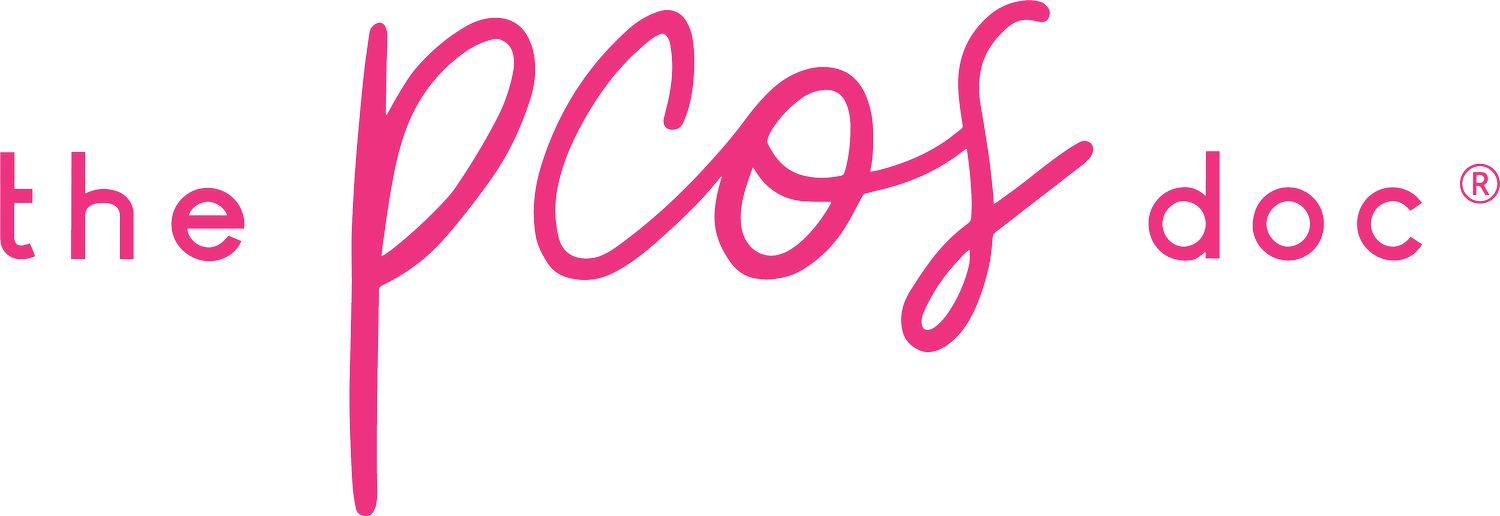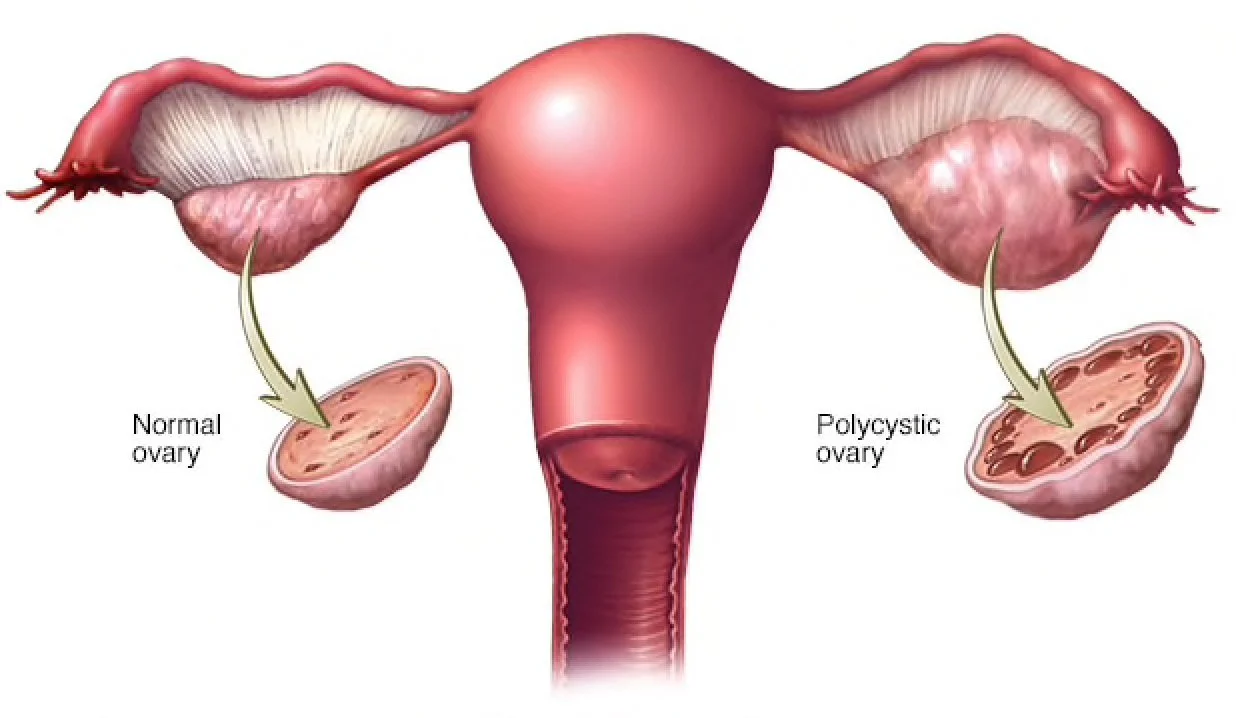What is PCOS?
Polycystic Ovarian Syndrome (PCOS) is a complex metabolic disorder found in as many as 1 in 7 women (possibly more). In one study, up to 70 percent of women with PCOS are still undiagnosed(2). Experts in the field of women's hormones have found that PCOS is a metabolic issue commonly rooted in systemic inflammation and blood sugar dysregulation which then manifests in hormonal symptoms.
In PCOS, many small follicles can develop over time giving the ovaries as “polycystic” appearance. These sacs or follicles contain immature underdeveloped eggs. When the eggs don’t mature enough to trigger ovulation, they can become cysts. This lack of ovulation changes levels of estrogen, progesterone, FSH, and LH. In women with PCOS, progesterone levels are lower than usual, while androgen levels are higher than usual. The androgens (male hormones) disrupt the menstrual cycle, which causes women with PCOS to have fewer menstrual periods and can also cause symptoms such as hirsutism (excess facial and body hair).
WHAT CAUSES PCOS?
Research has not determined an exact cause of PCOS but there are a few things that practitioners have noticed to be driving factors of PCOS which can include:
- Insulin resistance
- Hormonal birth control use
- Inflammation
- Gut issues
- Poor Sleep patterns
- History of emotional trauma or physical trauma
- Overtraining
- Sedentary lifestyle
- Estrogen dominance (can be due to overproduction of estrogen, xenoestrogens, and sluggish detox pathways)
- Genetic variants
COMMON SIGNS & SYMPTOMS OF PCOS:
- Infertility
- Weight gain or obesity (despite healthy eating and active lifestyle)
- Menstrual irregularities, absent period (amenorrhea)
- Heavy menstrual flow (menorrhagia)
- Acne
- excessive body and facial hair (hirsutism),
- Male-pattern hair loss
- Ovarian cysts
- Recurrent miscarriage
- Fatigue
- Mood swings
- Low libido
Not all women with PCOS will have all of the symptoms, and each symptom can vary from mild to severe. Some women only experience menstrual problems or are unable to conceive, or both.
DIAGNOSIS:
In order to be diagnosed with PCOS you need to meet 2 out of 3 criteria:
Irregular or missing menstrual cycle due to anovulation
Clinical and/or biochemical signs of hyperandrogenism
Polycystic ovarian morphology (polycystic ovaries diagnosed via ultrasound)
Nearly half of the respondents in the online survey of 1,385 PCOS patients from 32 countries visited three or more doctors before getting answers, and a third of women said it took more than two years to get a proper diagnosis.
MANAGEMENT:
There is no “cure” for PCOS, but don’t lose hope cysters! There are many ways to manage PCOS and its symptoms naturally. These can include eating an anti-inflammatory diet, lower in carbs and void of gluten and dairy (in some cases), and high-quality personalized supplementation. Stress reduction, good quality sleep, and regular exercise are also important to managing PCOS. Please consult a practitioner such as The PCOS Doc for exact doses and plans tailored to your specific hormone levels and needs. PCOS is a complex metabolic condition and should always be managed by a licensed practitioner. Dr. Natalie also offers a self-guided program that will help guide you through the key pillars of PCOS Management. Read about that HERE.
Want to start learning right away? Watch our FREE Training here which will walk you through the first steps to balance your hormones naturally with PCOS.
COMPLICATIONS:
Since PCOS affects the metabolism, hormones, and other body systems, there are quite a few complications that women with the syndrome are more prone to. These include infertility, gestational diabetes or pregnancy-induced high blood pressure, miscarriage or premature birth, nonalcoholic steatohepatitis — a severe liver inflammation caused by fat accumulation in the liver, metabolic syndrome — a cluster of conditions including high blood pressure, high blood sugar, and abnormal cholesterol or triglyceride levels that significantly increase your risk of cardiovascular disease, type 2 diabetes or prediabetes, sleep apnea, depression, anxiety and eating disorders, abnormal uterine bleeding and cancer of the uterine lining (endometrial cancer).
Resources:
**This material is not intended to be medical advice but is for education purposes only. Please consult your doctor before implementing any new medications or supplements.**

